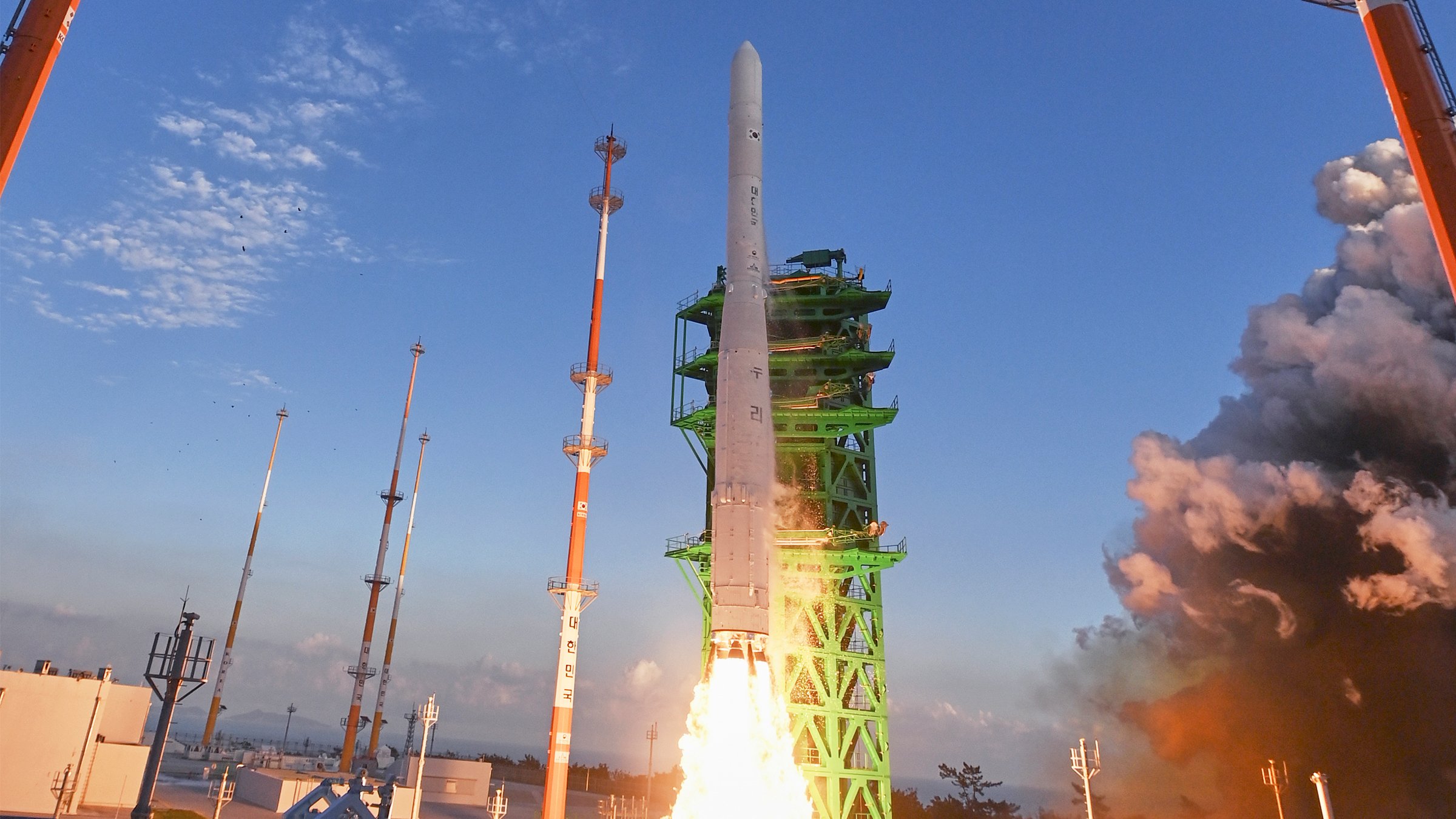Challenge
- KARI needed a sophisticated high-level RETF solution and the most efficient and safest testing system, as the number of tests is strictly restricted due to harmful gas emissions.
Solutions
- Rockwell Automation Korea deployed process control, human machine interface, FactoryTalk® Historian Site Edition (SE), FactoryTalk® Historian Machine Edition (ME), FactoryTalk® AssetCentre, production monitoring and control, and quality management systems to support agile data analysis, storage time and capacity.
- KARI applied a distributed control system that includes ControlLogix® PAC (Programmable Automation Controllers) Redundancy System, Stratix® network switches with Devised Level Ring (DLR) modules, FactoryTalk® Server & Client, Historian, AssetCentre, Process Book Reporting and 1756-TPtime.
- Rockwell Automation Korea provided a solution that configures stability and control systems for a high power output and used a programmable logic controller to shorten the lead time between test sites and the control room.
Results
- The three-stage engine combustion testing was successfully completed through over 100.
- Stability, agility, and problem responsiveness have been verified.
- Rockwell Automation Korea has secured a control system and technology for KSLV-II.
Setting Up a Safe Lift-Off for Korea’s 1st Homegrown Rocket KSLV-II
Following the successful launch of the Korean Space Launch Vehicle-I (KSLV-I) rocket, also known as Naro, built mainly using Russian technologies, the Korea Aerospace Research Institute (KARI) in South Korea embarked on a mission to develop its own technologies to build a homegrown rocket. The result – KSLV-II, otherwise known as Nuri, which was developed with the support of Rockwell Automation Korea’s rocket engine test facility control system.

Korea Space Launch Vehicle (Source: KARI)
Building South Korea’s Very Own Rocket
KARI needed a sophisticated high-level rocket engine test facility (RETF) solution that enabled safe remote control for engine testing, prompt troubleshooting, and emergency response to achieve the requirements for engine control.
Four 75-ton engines (first stage), a single 75-ton engine (second stage), and a 7-ton engine (third stage) had to be mounted onto the Nuri rocket with a total of six engines to power it for successful lift-off. Faced with these requirements, KARI selected Rockwell Automation Korea, which delivers the engineering capabilities needed as well as excellent reliability for control solutions.
We deployed a control system to KARI’s small-scale test facility and pursued the development and testing of the RETF over a decade together with researchers from KARI, leveraging the knowledge and experiences of Korean engineers and domestically developed programs for a liquid rocket engine test.
Rockwell Automation Korea participated in building the RETF for the Nuri project as a solution provider and engineering partner from April 2012 to July 2022 across four major phases:
- Phase 1: Combustor and turbo pump testing facility
- Phase 2: Three-stage engine combustion testing facility
- Phase 3: Engine combustion test facility for ground and high-altitude conditions
- Phase 4: Propulsion system testing facility
Rockwell Automation Korea supported multiple simulations by deploying process control, human machine interface (HMI), data (FactoryTalk Historian Site Edition (SE), FactoryTalk Historian Machine Edition (ME)), Asset (FactoryTalk AssetCentre), production monitoring and control, and quality management systems, for agile data analysis, storage time and capacity.
Distributed control systems (DCS), which include ControlLogix programmable automation controllers (PAC) Redundancy System, Stratix network switches with devised level ring (DLR) modules, FactoryTalk Server & Client, FactoryTalk Historian, FactoryTalk AssetCentre, process book reporting and time synchronization module (1756HP-Time) were applied.
Rockwell Automation Korea’s engineers designed and built a control system and developed a highly dependable program for liquid rocket engine combustion testing. As testing facilities were distant from the control tower, control and instrumentation (C&I) was established to remotely conduct and monitor combustion tests. We introduced an emergency stop system and offered maintenance/repair services to enable stable operation of the control system by simulating unexpected contingencies and diverse combustion situations.
We Have Lift-Off!
In collaboration with Rockwell Automation Korea, KARI built a control system for engine combustion test facilities to develop a liquid rocket engine. Equipped with a high-level control solution for combustion tests, KARI operated the control system stably and conducted over 200 combustion tests. As a result, KARI was able to secure a control system and technologies for the safe and successful launch of Nuri.
Through the establishment and operation of the control system for engine combustion test facilities, Rockwell Automation Korea positioned itself as a reliable partner that supports the configuration of control systems, enables remote control and provides engineering technology for effective and prompt troubleshooting in emergency situations.
Rockwell Automation Korea’s collaboration partner, Dr Yunseok So, along with the engine test and evaluation team, KSLV-II R&D directorate at KARI, praised the process and results of the project and thanked Rockwell Automation Korea for its role in the successful launch of the Nuri rocket.
“KARI was able to successfully develop 75-ton and 7-ton liquid rocket engines by building control systems and programs for engine combustion test facility in collaboration with Rockwell Automation Korea,” said Dr So. “We were able to make timely responses thanks to excellent engineers at Rockwell Automation Korea who have provided full support to address problems since 2012.”
“We at KARI, are looking forward to continuing to develop staged combustion engines to be used for next-generation launch vehicles with the help of Rockwell Automation Korea’s superb engineering and control solutions,” he added.
Building on experiences and technologies obtained from the RETF project for Nuri, Rockwell Automation Korea is committed to contributing to the development of locally developed rockets and supporting the progress of South Korea’s growing aerospace industry.
Published October 2, 2022
